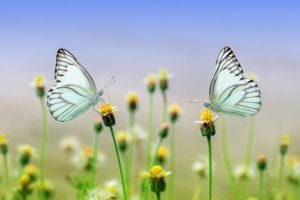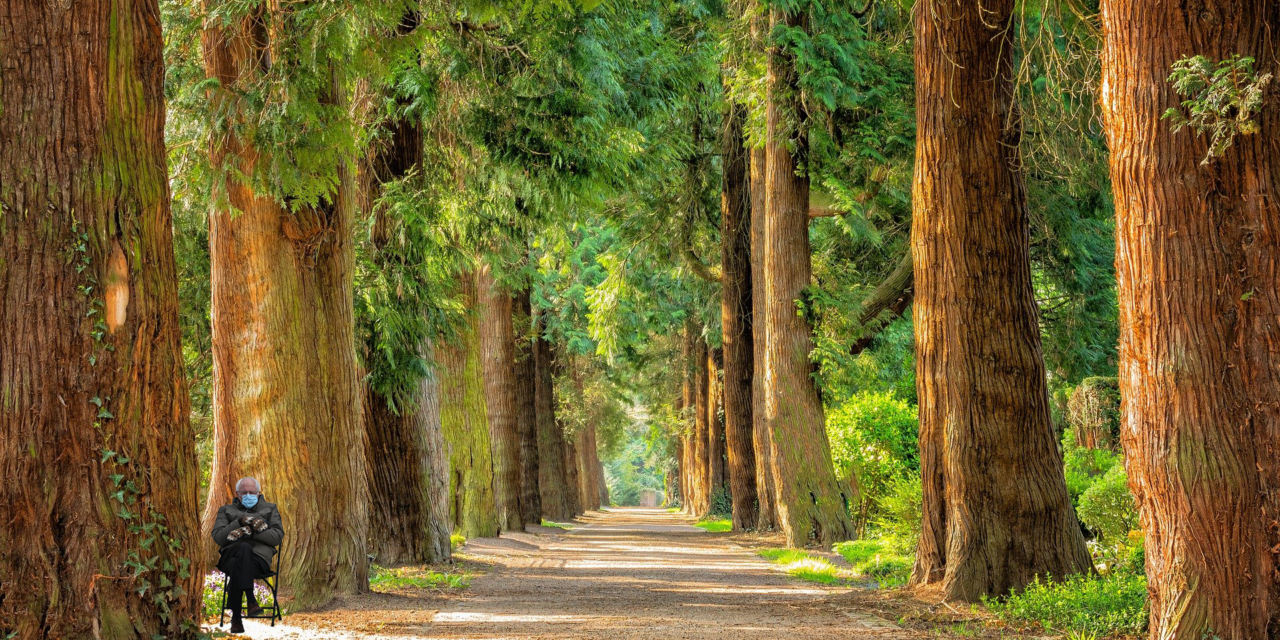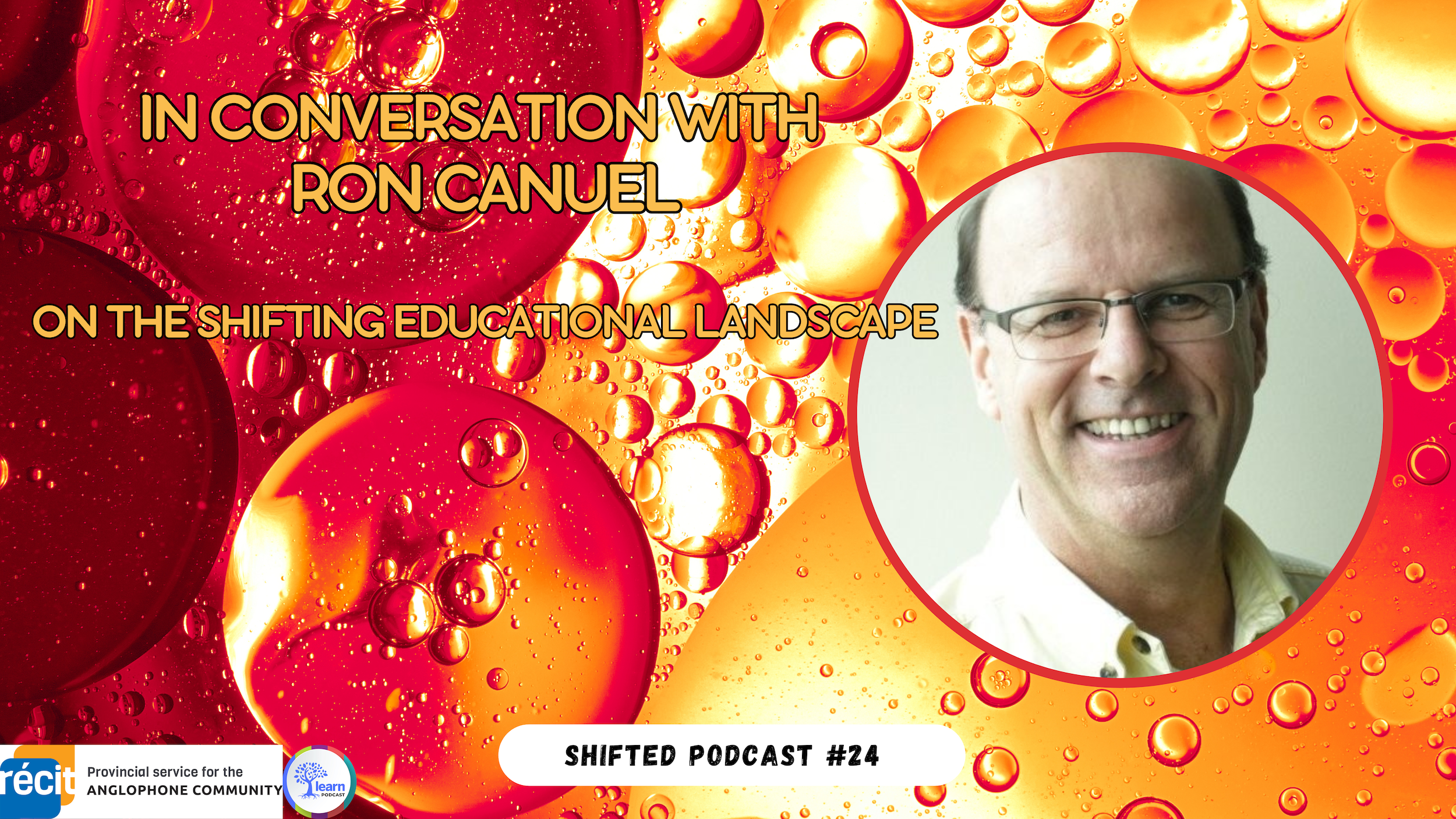Educators play a crucial role in leading discussions and learning opportunities with students about the beauty and wonder of our planet’s biodiversity. This discussion benefits from the vast amount of educational resources available to support the work of teachers. Documents are helpful but the (bicycle!) rubber hits the road when engaging the head, heart and hands of students.
Recently, I looked at an article which suggests that a student’s interest in the biosphere is a “significant determinant of environmental awareness and optimism,” (Niankara & Zoungrana, 2018). So, having these discussions need not be all doom and gloom, especially when everyone can contribute to the shift to a sustainable future.

Let’s facilitate learning outside. Let’s teach and learn about our planet in hands-on and experiential ways and great things will follow. Environmental organizations in Québec like Équiterre are aware of the importance of educating young people about healthy and environmentally responsible lifestyles, both for their own health and for that of the planet. Some of Équiterre’s environmental education projects include decarbonizing school transportation and promoting healthy and local food in schools. Recently, they let me know about Healthy Schools Day which highlights 5 ways schools and students can help Canada reach net-zero carbon emissions.
Let’s start with asking students what they are interested in learning about. This can open the door to youth voice in the classroom and it can help focus on issues that are present in the minds of youth and the communities they live in. Environmental awareness and consumer rights and responsibilities is one of the Broad Areas of Learning in the QEP so it naturally comes up! It is a part of the curriculum with deep roots and themes that thread their way well through subjects and cycles.
Earth Day is April 22 and I encourage all teachers to lead a large or small activity that engages the head, the heart, and the hands of students. Share some ideas or comment on your favourite on our Earth Day padlet, where I have started listing examples of activities that teachers can use in schools and around the community.
As a follow-up to Earth Day, LEARN will be hosting an assembly to share and hear what teachers did for Earth Day/Week. Did you plant a sprout? Did you take a nature walk? We want to hear about it!

We will discuss what works and what needs ongoing development by celebrating activities and projects that spark discussions around what students are interested in.
Educators are invited to join on April 29 at 3:30 pm
You can register for the assembly here.
I’m all jazzed up about environmental sustainability because last month over 60 educators, CLC Community Development Agents, Principals, and Community Partners came together online for the Learn to Action: Environment and Sustainability Education Institute hosted by LEARN and McGill. (DISE)
Participants presented their virtual posters highlighting sustainability projects happening in Quebec schools. Examples include Trashless Tuesdays at Valcartier Elementary School as well as participation in the Canadian Geographic Energy Diet at Heritage Regional High School in Chambly. You can review the Environment and Sustainability Institute padlet which includes resources and examples.
The learning sessions included:
– Curriculum for climate change action
– Outdoor education in elementary schools – from LBPSB and from SWLSB
– Citizen science with Water Rangers
– School-Community Gardens: Building engagement, relationships and connections
– Bringing Jane Goodall Institute’s Roots & Shoots into the Classroom
– Solving today’s most pressing environmental issues using low-tech to high-tech solutions
Best of all were the conversations among a network of teachers in English Schools in Quebec who are leading the way, or who simply wanted to learn more about integrating projects that increase environmental awareness and sustainable action into their school and classroom.
 One key message was the need to maintain the momentum around these issues with regular opportunities to learn and share what is happening in English Schools in Quebec. If you want to join the mailing list of our network, sign up here.
One key message was the need to maintain the momentum around these issues with regular opportunities to learn and share what is happening in English Schools in Quebec. If you want to join the mailing list of our network, sign up here.
Better late than never, the provincial and federal government are committing significant resources to meet its 2030 Paris Agreement emissions reduction goal and Canada’s commitment to Sustainable Development by 2030. Check out #TeachSDGs .
Now, I’m not going to get too excited yet, but I believe that young people will hold governments accountable for climate action when they are equipped with knowledge of the challenges that we are facing and solutions like reducing carbon footprints, reconnecting with nature, planting a garden, and growing a community.
When we as teachers empower students to be active and engaged citizens, we give them the chance to practice being advocates and be knowledgeable about the commitments our governments are making.





